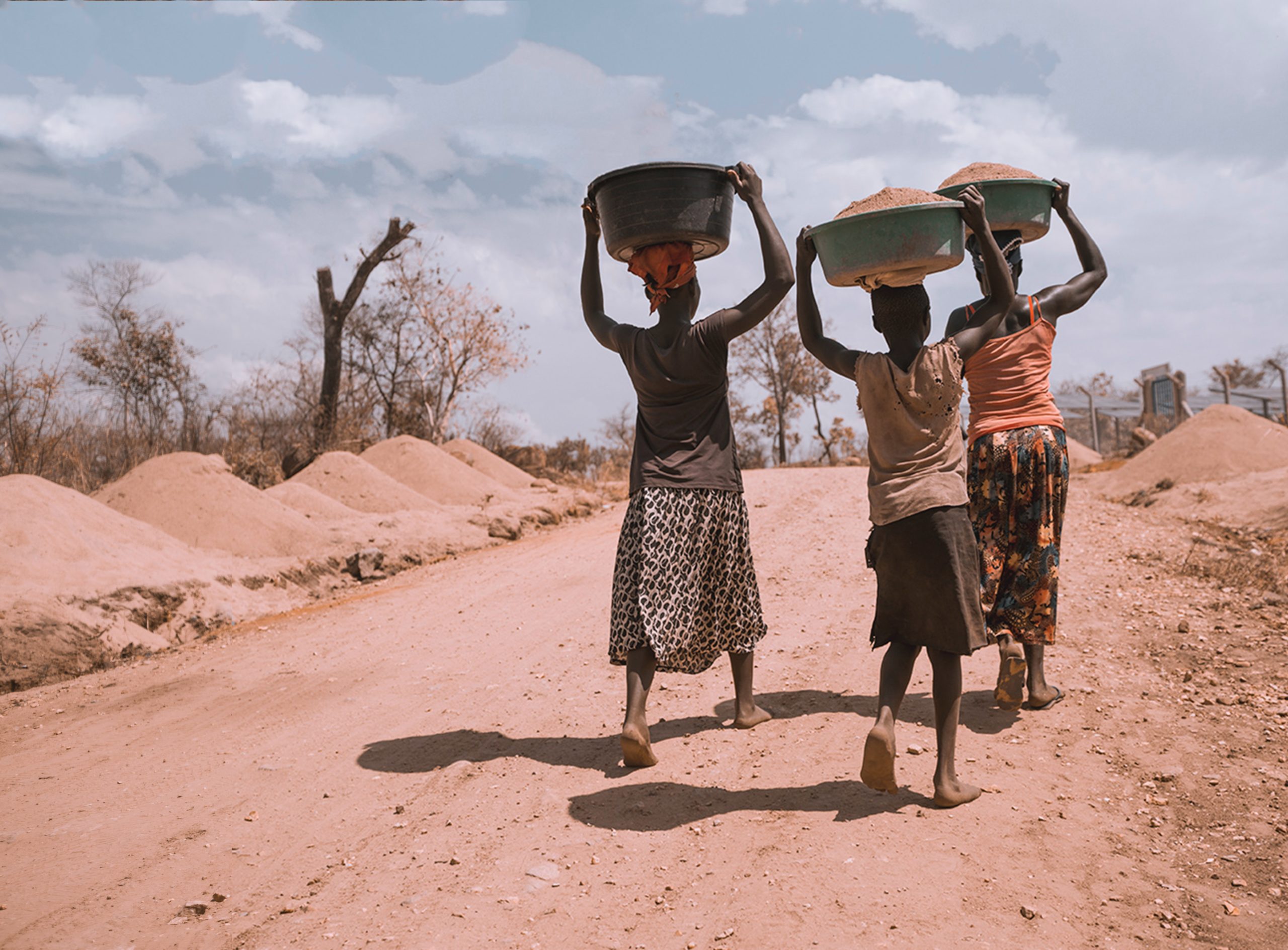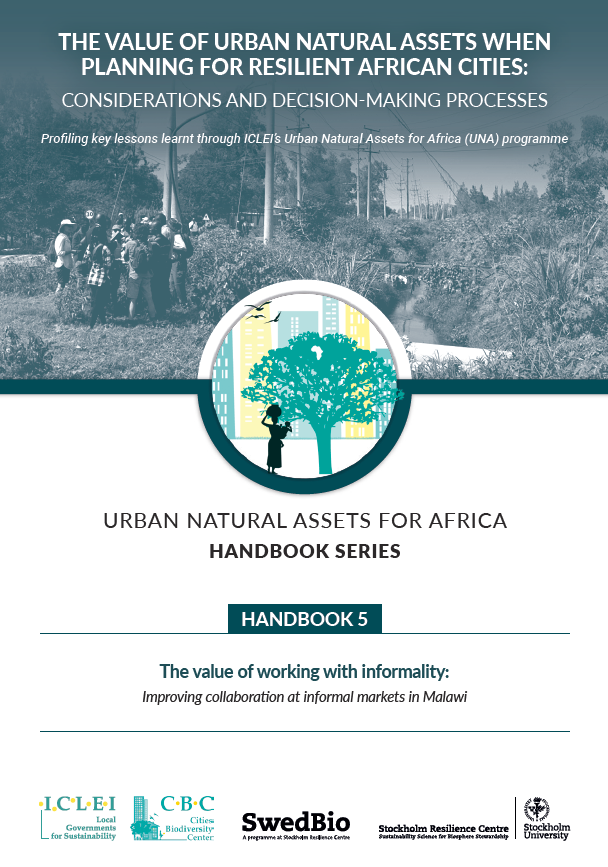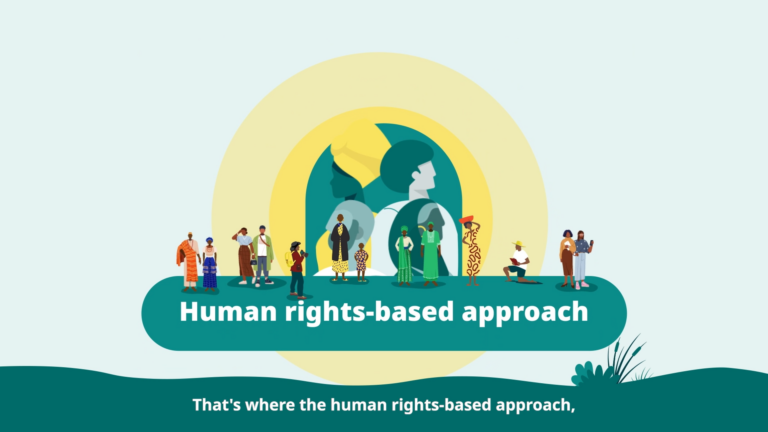chevron_left Back to Resources
Urban natural assets for Africa handbook series: Handbook 5
library_books
Publications & reports




Download:
Related ICLEI Pathway(s)
Nature-based development
Resilient development
Equitable and people-centered development
About
Resource summary
HIGHLIGHTS FROM THIS HANDBOOK
- The informal sector is a key part of the urban framework of many African cities, and it contributes significantly to economic development and job creation. Shifts in the way formal structures think about and interact with this sector are, therefore, required.
- Engagement and collaboration between city councils and those operating in informal systems is essential in ensuring that urbanisation unfolds in a sustainable way and natural assets are protected.
- Through the implementation of an UNA Rivers restoration project at the informal riverside markets in Lilongwe, it became clear that the existence of fairly formal governance structures within the informal sector makes collaboration between cities and communities not just possible, but easier than expected. By tapping into “official” entry points within informal structures, we’ve found that we can build important alliances and foster change faster.
WHO SHOULD CONSULT THIS HANDBOOK?
- Organisations working on sustainability and development issues in Africa
- City officials (planning, environment, engineers, developers and related disciplines)
- City officials (economists, finance and procurement departments)
- Academic researchers (and related organisations)
Related resources
slide 5 of 3

arrow_outward
library_books
Publications & reports
City of Johannesburg Goods and Services Assessment
library_books
Publications & reports

arrow_outward
video_camera_front
Webinars & videos
Nature-Based Solutions for African Cities: The Human Rights-Based Approach
video_camera_front
Webinars & videos

arrow_outward
library_books
Publications & reports
5 strategies to integrate nature into urban planning for resilient African cities
library_books
Publications & reports


